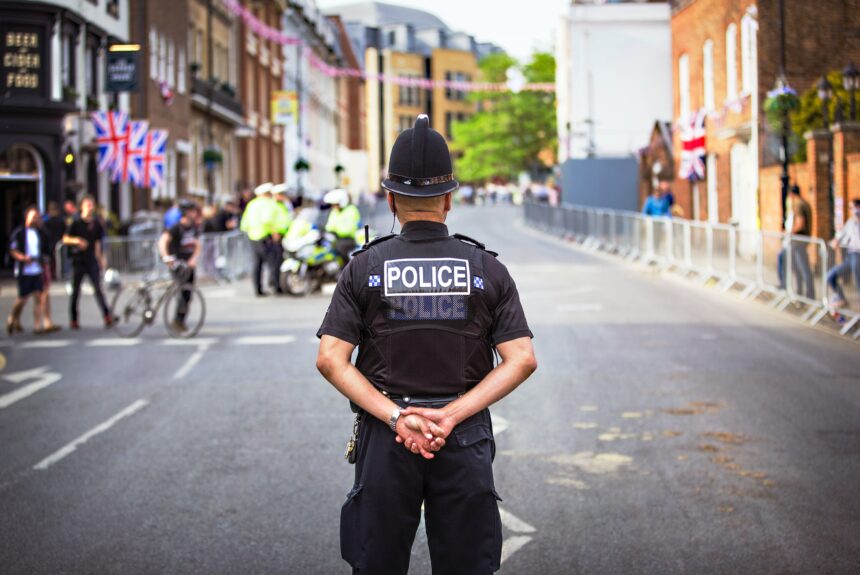Police work is both challenging and demanding, requiring individuals with a unique set of skills and qualities. To ensure that potential candidates possess the necessary attributes to excel in the role, police departments often rely on police psychometric tests during their recruitment process. In this article, we will delve into the world of police psychometric tests, understanding what they are, why they are crucial, and how to prepare effectively.
Related: Citizenship Practice Test Questions and Answers
- Police Psychometric Test Questions and Answers
- What Is a Police Psychometric Test?
- Why Are Police Psychometric Tests Important?
- Common Components of Police Psychometric Tests
- Preparing for a Police Psychometric Test
- Effective Test-Taking Strategies
- Interpreting Your Test Results
- Conclusion
- FAQs About Police Psychometric Test
Police Psychometric Test Questions and Answers
Sample Police Psychometric Test Questions and Answers:
1. Question: What is the best way to handle a situation where a suspect becomes aggressive during an interrogation?
Answer: Remain calm, maintain a safe distance, use verbal communication to de-escalate the situation, and call for backup if necessary.
2. Question: What does the acronym “CPR” stand for in the context of first aid?
Answer: CPR stands for Cardiopulmonary Resuscitation.
3. Question: How would you prioritize multiple tasks during a high-pressure situation?
Answer: Prioritize tasks based on urgency and potential impact. Focus on immediate threats first, followed by tasks that can prevent future incidents or support ongoing operations.
4. Question: Describe a situation where you had to work effectively as part of a team. What was your role, and what was the outcome?
Answer: Provide a specific example from your experience, detailing your role, the team’s objective, and the successful outcome of the situation, emphasizing your teamwork and collaboration skills.
5. Question: How do you handle stress and maintain composure in high-stress situations?
Answer: Discuss healthy coping mechanisms such as deep breathing, staying organized, seeking support from colleagues, and maintaining a healthy work-life balance.
6. Question: What steps would you take to secure a crime scene?
Answer: Secure the area, restrict access, document entry and exit points, preserve evidence, and maintain the integrity of the scene until forensic experts arrive.
7. Question: How do you stay updated with the latest laws and regulations relevant to law enforcement?
Answer: Mention attending regular training sessions, reading law enforcement publications, participating in online forums, and discussing legal updates with colleagues and superiors.
8. Question: What does the term “community policing” mean, and why is it important?
Answer: Community policing involves building positive relationships and partnerships between law enforcement agencies and the communities they serve. It is important because it enhances trust, reduces crime, and promotes a safer environment.
9. Question: How would you handle a situation where you suspect a fellow officer is engaged in misconduct?
Answer: Report your concerns to a higher authority within the department, following the appropriate chain of command and departmental policies, ensuring confidentiality and integrity of the investigation.
10. Question: Describe a challenging situation you faced in your previous job. How did you handle it?
Answer: Provide a specific example, detailing the challenge, your approach to solving it, and the positive outcome, demonstrating problem-solving skills and resilience.
What Is a Police Psychometric Test?
Understanding the Purpose
Police psychometric tests are assessments designed to evaluate various aspects of a candidate’s mental abilities, personality traits, and situational judgment. These tests aim to determine if an individual possesses the qualities required to thrive in law enforcement roles.
Types of Psychometric Tests
There are several types of psychometric tests commonly used in police recruitment. These include numerical reasoning tests, verbal reasoning tests, situational judgment tests, and personality assessments. Each type serves a unique purpose in assessing different facets of a candidate’s suitability for the role.
Why Are Police Psychometric Tests Important?
Ensuring Suitability for the Role
The role of a police officer is multifaceted, requiring individuals to make quick decisions, communicate effectively, and handle stressful situations with composure. Psychometric tests help identify candidates who possess these qualities, ensuring they are a good fit for the job.
Enhancing Decision-Making in Recruitment
By using standardized psychometric tests, police departments can make more informed decisions during the recruitment process. This leads to a higher likelihood of hiring candidates who are well-suited for the role, ultimately benefiting both the department and the community.
Common Components of Police Psychometric Tests
Numerical Reasoning
Numerical reasoning tests assess a candidate’s ability to work with numbers, data, and statistics. They are vital for roles that require data analysis and accurate record-keeping.
Verbal Reasoning
Verbal reasoning tests evaluate a candidate’s comprehension, language skills, and ability to draw logical conclusions from written information. These are essential for roles involving communication and report writing.
Situational Judgment
Situational judgment tests present candidates with hypothetical scenarios they might encounter in their work. These tests assess decision-making skills, problem-solving abilities, and ethical judgment.
Personality Assessment
Personality assessments delve into a candidate’s traits, preferences, and behavioral tendencies. They help identify individuals who align with the values and requirements of the police department.
Remember, the specific questions and correct answers can vary, and it’s crucial to prepare thoroughly and understand the underlying principles and skills being assessed rather than memorizing specific answers. Good luck with your preparation!
Preparing for a Police Psychometric Test
Self-Assessment
Before preparing for a psychometric test, candidates should conduct a self-assessment to identify their strengths and areas needing improvement. This self-awareness can guide their study efforts.
Practice Materials
There are various practice materials available, including sample questions and mock tests. Candidates are encouraged to utilize these resources to familiarize themselves with the test format.
Time Management
Effective time management is crucial when preparing for psychometric tests. Create a study schedule, allocate sufficient time to each section, and practice under timed conditions.
Effective Test-Taking Strategies
Read Instructions Carefully
Start by reading the test instructions thoroughly. Ensure you understand the format, time limits, and scoring criteria for each section.
Manage Your Time Wisely
During the test, pace yourself to complete all sections within the allotted time. Don’t get stuck on challenging questions; move on and return to them if time permits.
Stay Calm Under Pressure
Psychometric tests can be intense, but maintaining a calm and focused mindset is essential. Deep breathing and positive self-talk can help manage anxiety.
Interpreting Your Test Results
Understanding Scores
After completing the test, you’ll receive a score report. Understand what your scores mean and how they relate to the specific requirements of the police department.
Seeking Feedback
If you don’t pass the test or want to improve your performance, consider seeking feedback. This can help you identify areas for growth and tailor your preparation.
Conclusion
In the world of law enforcement, police psychometric tests play a crucial role in selecting candidates who possess the mental and behavioral qualities necessary for the job. By understanding the purpose of these tests, preparing effectively, and utilizing smart test-taking strategies, aspiring police officers can increase their chances of success in the recruitment process.
Related: Walmart Assessment Test Answers
FAQs About Police Psychometric Test
What is a police psychometric test?
A police psychometric test is an assessment used to evaluate the mental abilities and personality traits of candidates applying for law enforcement roles.
Can I prepare for a psychometric test?
Yes, you can prepare for a psychometric test by using practice materials and developing effective study strategies.
How long does a police psychometric test take?
The duration of a police psychometric test can vary, but it typically takes a few hours to complete.
What happens if I fail the test?
Failing a psychometric test does not necessarily disqualify you from the recruitment process. You may have the opportunity to retake the test or seek feedback for improvement.
Are psychometric tests used in all police departments?
The use of psychometric tests may vary among police departments, but it is a common practice in many.
Can I appeal the results of a psychometric test?
Policies regarding appeals vary by department, so it’s best to inquire about the specific process with the recruiting agency.
Is there a passing score for these tests?
Passing scores for psychometric tests can vary, and what constitutes a passing score depends on the department’s criteria.
What if I have a disability or special accommodation needs?
Most police departments provide accommodations for candidates with disabilities. Contact the department to discuss your specific needs.
Are there any age restrictions for taking these tests?
Age restrictions for police recruitment may vary by jurisdiction, so check the requirements of the department you are applying to.
How often can I retake a psychometric test?
Retake policies vary by department, so consult with the recruiting agency regarding their specific guidelines for retaking psychometric tests.
Upwork Readiness Quiz – Take Quiz Now!





